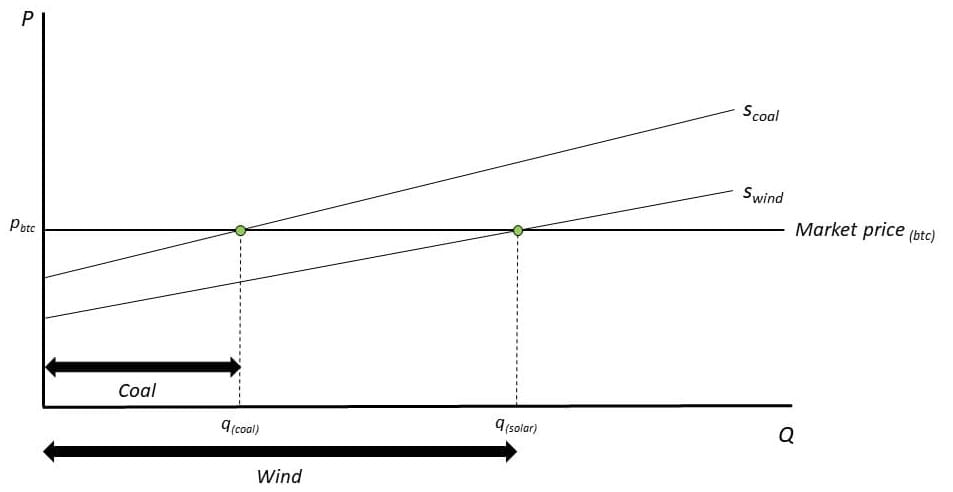Economic integration of Bitcoin mining in renewable energy and grid management
Our findings suggest that Bitcoin mining can help reduce wasted renewable energy, provide financial benefits to renewable energy producers, and lower electricity prices for consumers.

In this preprint, Murray Rudd and Dennis Porter explore how Bitcoin mining can help stabilize electricity grids and support the use of renewable energy sources like solar and wind. These energy sources can be inconsistent and often located far from where the energy is needed, creating challenges for electricity grids. To address these issues, solutions like connecting different grids, using backup power sources, advanced energy storage, and flexible energy use are important.
Bitcoin mining, which can easily adjust its energy use, has emerged as a good fit for these flexible energy use programs. It can quickly increase or decrease its electricity consumption, helping to balance supply and demand in the electricity market. This helps stabilize electricity prices and improves the economics of renewable energy sources.
We use an economic analysis technique called comparative statics to highlight the potential economic benefits of combining Bitcoin mining with renewable energy production. Consistent energy demand from Bitcoin mining can encourage investment in renewable infrastructure. We also discuss the positive environmental impacts of using waste energy for mining and the policy measures that could support such integrations.
Our review of the economics of Bitcoin mining suggest that it can help reduce wasted renewable energy, provide financial benefits to renewable energy producers, and lower electricity prices for consumers. Overall, Bitcoin mining could play a significant role in creating a stable, sustainable energy future by promoting renewable energy use and supporting the economic viability of renewable energy projects.
The paper is currently available for free on the SSRN preprint server. Comments on the preprint are welcome.




Comments ()